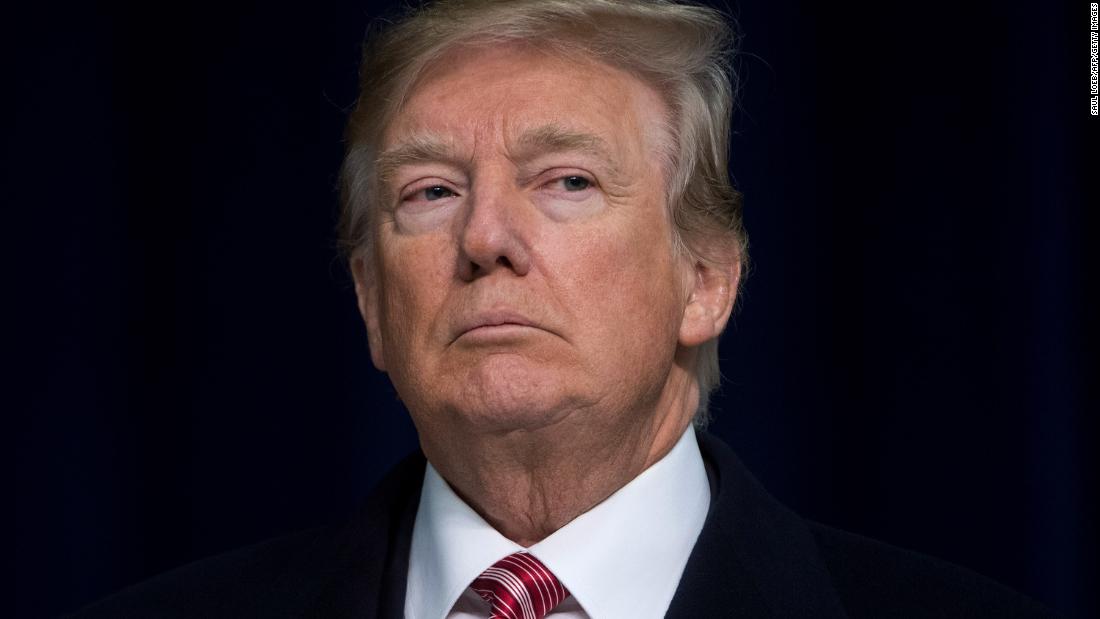
Number of the week: A new Fox News poll finds that only 38% of voters said they would re-elect President Donald Trump if the election were held today. A majority, 55%, said they would vote for someone else.
That's in line with previous Fox News polls, which also found that a majority of voters wanted someone else to be president.
What's the point: The findings of Fox News are no surprise. The President has consistently had a negative net approval rating (approval rating minus disapproval rating). The re-election question is merely an offshoot of that and indicates that voters are not very happy with Trump's job performance so far.
Despite the consistency of the negative polling results for Trump, I would be at least a little hesitant to read too much into them. Job growth from this point forward in his presidency is likely to be a more telling indicator.
The re-elect question (or some form of it) at this point in a president's first term has been almost laughably unpredictive of the actual election result. Americans said they wanted their president re-elected at this point in the 1980 and 1992 cycles. Both times the president would go on to lose. At this point in the 1984, 1996 and 2012 cycles, Americans said didn't want to re-elect the president. The president would go on to win.
Just once out of six times (in the 2004 cycle) since 1980 did the re-elect question prove to be predictive two years out.
That means Trump has time to turn around his sinking ship. In fact, it could be simpler for him to do so than we think.
All the President may need is for the economy to keep up its growth.
I've noted before how Trump's overall approval rating has generally lagged his economic approval rating. In November, for instance, the state of the economy was generally seen as good by voters, and Republicans still lost the House.
Historically, that makes sense. Job growth generally doesn't predict midterm election results. The first two years of job growth also don't do a good job of predicting a president's approval rating through this point into a term in the post-World War II era.
Presidential elections, though, are a totally different beast from midterm elections in terms of how the state of the economy affects them.
Let's examine the relationship between a president's re-election margin and job growth from this point (December two years before the election) forward to said election for each of the 10 presidents who have run for re-election since World War II. (Note: I'm excluding 1964 because President John F. Kennedy was assassinated later in his first term.)
It turns out there has been a clear correlation between said job growth and the ultimate election result.
If the economy has the same job growth over the final two years of Trump's first term as it has over the first two years (about 3%), history suggests Trump would be favored to win by a few points.
Remember, though, we're dealing with only 10 data points. Past trends may not hold. Moreover, the margin of error is wide enough that a Trump loss would be consistent with past data, even if job growth stayed steady. Part of Trump's chances will have to do with whether job growth is stronger in 2019 or 2020. Job growth closest to the election is more important (see 1980 for an example of this phenomenon).
With all those caveats, a maintenance of current levels of job growth in Trump's final two years could be enough to win him re-election.
I should point out that in addition to the final two years of job growth I tried to take into account a president's approval rating at this point in a term and job growth up to this point. The idea being that maybe it's important to consider that Trump is currently unpopular even with strong job growth. The only thing that clearly mattered in forecasting a president's re-election margin was the final two years of job growth.
Put another way, it's plausible that a continuing strong economy could boost Trump just in time to win, even though it hasn't helped him so far.
Of course if the economy goes south, it could be the nail in Trump's re-election coffin.
Bagikan Berita Ini














0 Response to "President Donald Trump's polls are bad, but here's why he could win in 2020"
Post a Comment